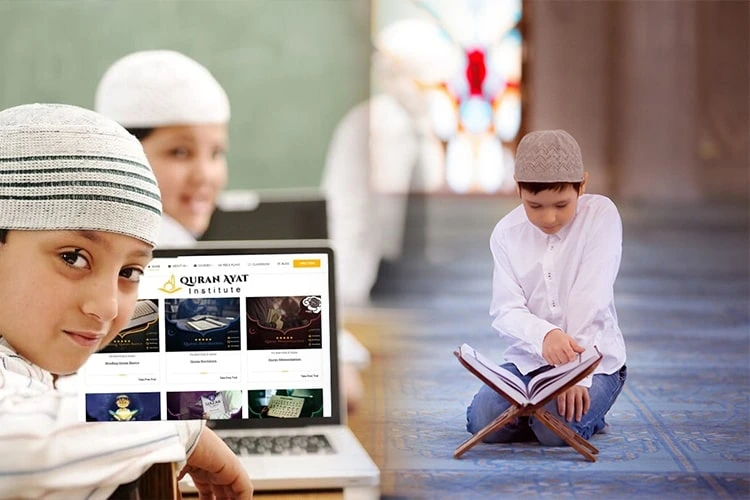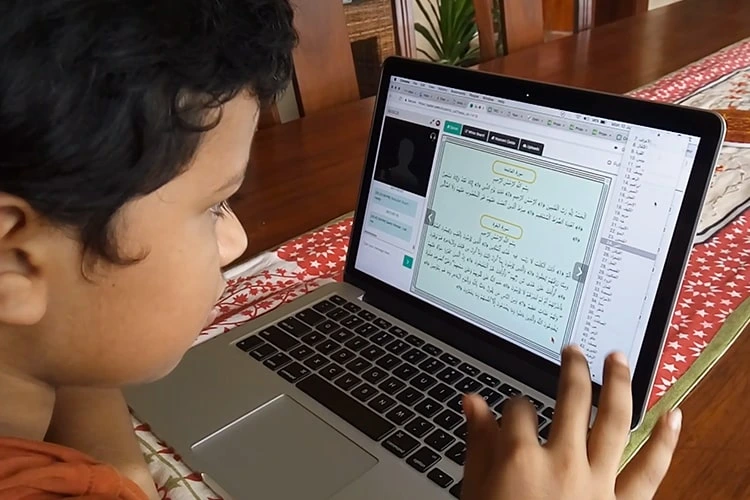The process of reading the Quran is very rewarding spiritually. For some, it is a goal in life which gives them a sense of connection with the religion, provides self-development and enhances their relationship with Allah. At the same time, for a novice, the text can be very overwhelming due to the rules of the Arabic language and the concepts of recitation. This guide focuses on breaking learn to read Quran down to make it easier. This will help anyone who is a newly converted Muslim, someone who is just trying to start reading the Quran or an individual who is looking for spiritual upliftment. We will detail powerful ways, helpful resources, and inspirational advice to help capture the readers interest.
Understanding the Basics of the Arabic Language
Unlocking the intricate and beautiful depth of the Quran lies in mastering the basics of Arabic – the key to your epic journey.
The Significance of Arabic in the Quran
Every translation misses out on the beauty, complexity, and essence of Allah’s words. Although Arabic itself is a language exquisite in its depth and beauty, the Quran is eloquently revealed in it. Every translation may depict the essence, but often strips away the nuanced flow that accompanied the original form. Learning the basic strand of any language provides the learner the capacity to grasp the information in its rawest form, so doing the same for Arabic allows you to read the Quran with unrivaled depth.
Learning the Arabic Alphabet
Knowing the letters of the alphabet is the first step toward reading the Quran, but there are more steps to engage with it. 28 letters compose the Arabic language, and their phonetic as well as written formats differ based on their position in a word. The learner must perform simple activities that correspond the sound to the letter forms in order to phonate fluently.
Understanding Basic Pronunciation Rules
When it comes to reading the Quran, the diction and pronunciation plays a crucial role, as with many things Arabic. It requires attention. Knowing special letters for example ق (qaaf) and غ (ghayn) will make it a little easier to formulate the ram. This embeds the fundamental needs of acceptance in the articulation and recitation of the Quran which allows the reader to master the recitation and participate in the discourse.
The Importance of Tajweed in Learning to Read the Quran
Tajweed provides assurance that recitation of the Holy Quran will be done eloquently, and beautifully with proper care on meaning and context.
What is Tajweed?
Tajweed refers to a specific methodology of reciting the Quran which pays attention to the pronunciation and articulation of each word. This method seeks to avoid any distortion of meaning when reciting and covers all nine prescribed modalities of Qaala Muhammad, peace be upon Him.
Why is Tajweed Necessary?
Lack of proficient application of Tajweed rules in reciting certain verses of the Quran might result in misunderstanding or misinterpretation of some verses . This is done by Tajweed to make sure that the Qur’an is not mispronounced; its recitals are performed with all its meanings intact.
Basic Rules of Tajweed for Beginners
New learners may start on the other side of the kada by applying rules like extending the vowels and making pauses between words. These rules will help ease your work of mastering Tajweed.
Choosing the Right Learning Method

In selecting and employing a suitable Tajweed learning technique, one ensures that the learning experience is both efficient and pleasant.
Self-Study vs. Guided Learning
Self-teaching is more economical in time but is less accurate than coaching, especially for complicated languages like Arabic and Tajweed. Through coaching, a student gets their errors rectified immediately which accelerates the learning process.
Online Quran Classes vs. Traditional Madrasa
One advantage of online Quran classes is that one can learn from anywhere. Traditional madrasas offer face to face learning. It is up to the individual which option goes with their calendar and study preferences.
How to Choose the Best Option for Yourself
Study what your lifestyle looks like, including your goals and how quickly you wish to learn. Some might prefer social online lessons while for others a local Quran teacher may be more engaging.
Benefits of Online Quran Learning for Beginners
For novices, learn to read quran online offers availability, ease of access, and the option of special instructions intended to assist the learner.
Flexibility and Convenience
When classes are held online, you can select the study hours which makes it easier to learn the Quran, even when one is busy.
One-on-One Personalized Sessions
A lot of services provide a chance to schedule meetings so as to focus on what the client requests with the relevant attention. This is particularly useful since it helps learners to cope with many.
Learning at Your Own Pace
With online learning, one can be accelerating or taking their learning slow and everything in-between, since the platforms need no supervision.
Step-by-Step Guide to Learn to Read Quran

The process of Quran reading can now be done online, making it easy to personalize the learning approach while providing organization for every reader.
Step 1: Start with Noorani Qaida
Qaida Noorani is a book specifically crafted for people starting with Arabic letters where reading, writing, and pronunciation are concerned.
- How It Helps Beginners: It teaches simple Quranic phonetics and get accustomed to producing Quranic sounds.
- Recommended Practice Routine: Spend 20-30 minutes each day reciting Noorani Qaida and you will surely improve.
Step 2: Mastering Arabic Phonetics and Pronunciation
Get letter sounds and single out sounds using flashcards and learning apps.
- Common Mistakes: Do not simply skip difficult letters and speed through them.
- Helpful Resources: Apps such as Quran Companion, along with other audio resources, are very useful for learning sounds and letters.
Step 3: Learning Basic Tajweed Rules
- Mistakes Beginners Make: Not using elongations (madd) pauses correctly.
- How Tajweed Improves Recitation: It enhances flow and accuracy and her melodious recitation becomes filled with meaning.
Step 4: Practicing Short Surahs
Begin learning Surah Al-Fatihah as well as Ikhlas and other short Surahs.
- Importance of Repetition: A combination of listening and repeating significantly improves confidence and fluency.
- Tip: Use audio recitations by renowned Qaris for guidance.
Step 5: Reading the Quran with a Tutor
A helper of the Quran is useful because he can motivate and counsel students as they go.
- Finding a Reliable Tutor: Try searching for tutors on websites such as Quran Academy or ask at your local masjids.
- Consistency is Key: Schedules without long breaks guarantee progress in learning.
Tips to Stay Consistent and Motivated
- Set a Routine: Allocate a specific portion of your day for Quran study without skipping.
- Use Digital Resources and Apps: Platforms such as Bayyinah TV, Quran Companion, Tajweed App contribute to effective learning.
- Find a Quran Reading Partner: Having a friend to study with makes your interactions more pleasant and adds a sense of responsibility.
Common Challenges and How to Overcome Them
Maintain patience and continuously measure your learning methods to ensure improvement.
Difficulty in Pronunciation
If saying a word seems to be complicated, then focus on pieces rather than whole words. Utilize audio-enabled applications to enhance your listening and pronunciation skills.
Lack of Consistency
In order to solve irregular practice problems, set achievable milestones. Even practicing for a mere ten minutes every day can help over time.
Finding Motivation to Continue
When thinking about how to go on, always remember the spiritual benefits Quran recitation offers. Think about the beautiful bond that it creates with Allah and remind yourself of the wonderful gifts.
Embarking on Your Quran Learning Journey
Similar any new skill, Quran reading can appear daunting at first, however, is attainable with time and effort. Breaking the process into small components will further make Quran reading a smooth journey. The intention to read is what truly matters. Maintain consistency, utilize available resources, and acknowledge the fact that reading the Quran is not a sprint, but a marathon.
If you still feel lost, why not take an online Quran course or see if there are local teachers who could help you out. There is immense joy in reading the Quran once the right guidance is presented—it can be attained in a loving and confident manner.
Frequently Asked Questions (FAQs)
To become proficient in reading the Quran, getting acquainted with it for around six to twelve months should be enough, of course taking into consideration one’s commitment to strive toward the objective.
While a proficient student would be able to do so unaided, a good teacher is beneficial for ensuring that the student reads Tajweed and all the other intricacies of recitation accurately.
You can start learning anytime given you know the right way to approach it, but ideally, the younger, the better.

